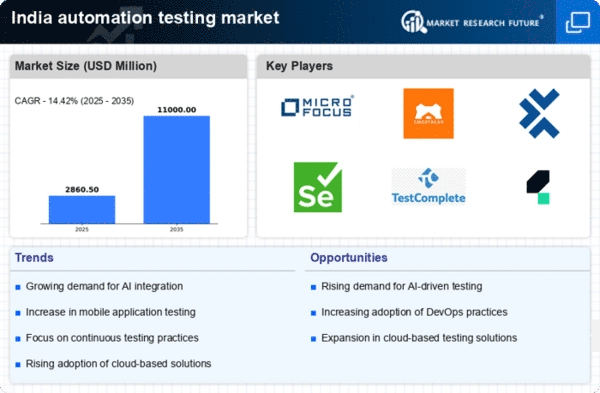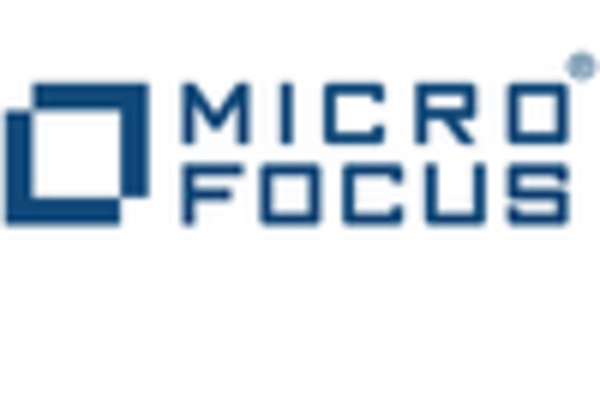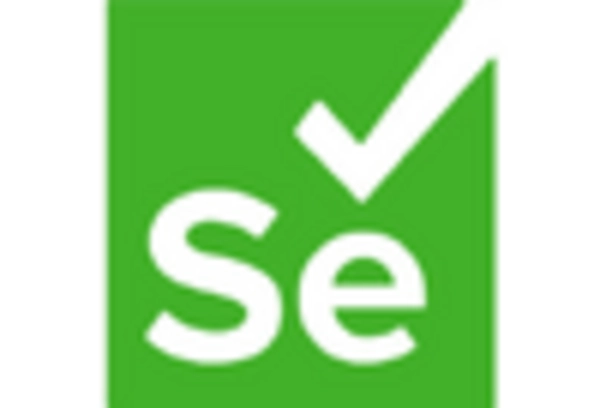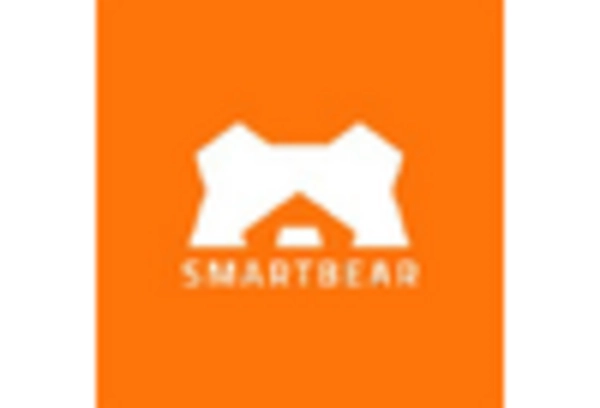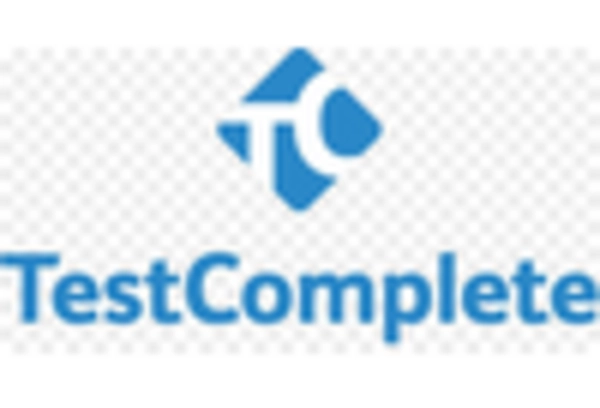Escalating Cybersecurity Concerns
As cybersecurity threats continue to escalate, the automation testing market in India is witnessing a heightened emphasis on security testing. Organizations are increasingly aware of the potential risks associated with software vulnerabilities, prompting them to invest in automated security testing solutions. In 2025, it is projected that the cybersecurity market in India will exceed $3 billion, with a substantial portion directed towards automation testing. This trend reflects a growing recognition of the importance of integrating security into the testing process, thereby ensuring that applications are resilient against cyber threats. The automation testing market is adapting to these needs, offering specialized tools that address security concerns while maintaining efficiency.
Integration of Agile Methodologies
The integration of agile methodologies within the software development lifecycle is significantly influencing the automation testing market in India. Agile practices emphasize iterative development and rapid feedback, necessitating efficient testing processes. As of 2025, approximately 70% of Indian software companies have adopted agile frameworks, which inherently require automation testing to keep pace with development cycles. This shift towards agile not only accelerates the development process but also enhances collaboration among teams. Consequently, the automation testing market is adapting to these agile demands, leading to increased investments in automation tools that facilitate continuous testing and integration, thereby improving overall project outcomes.
Growing Focus on Digital Transformation
Digital transformation initiatives are reshaping the landscape of the automation testing market in India. Organizations are increasingly adopting digital technologies to enhance operational efficiency and customer engagement. In 2025, it is estimated that over 60% of Indian enterprises will prioritize digital transformation, which includes the implementation of automation testing to streamline processes. This focus on digitalization drives the need for automated testing solutions that can handle complex applications and ensure seamless user experiences. The automation testing market is thus positioned to benefit from this trend, as businesses seek to leverage automation to achieve their digital goals and maintain a competitive edge.
Emergence of Low-Code and No-Code Platforms
The rise of low-code and no-code development platforms is significantly impacting the automation testing market in India. These platforms enable users with minimal coding experience to create applications, which in turn necessitates effective testing solutions. By 2025, it is anticipated that the low-code market in India will grow by over 30%, leading to an increased demand for automation testing tools that can accommodate these new development paradigms. The automation testing market is responding by developing user-friendly testing solutions that cater to non-technical users, thereby broadening the scope of automation testing. This trend not only democratizes application development but also enhances the overall quality of software products.
Rising Demand for Software Quality Assurance
The automation testing market in India is experiencing a notable surge in demand for software quality assurance. As businesses increasingly rely on software applications, the need for robust testing solutions becomes paramount. In 2025, the Indian software market is projected to reach approximately $10 billion, with a significant portion allocated to automation testing. This trend is driven by the necessity to enhance software reliability and performance, thereby reducing time-to-market. Companies are investing in automation testing tools to ensure that their products meet high-quality standards, which is essential for maintaining competitive advantage. The automation testing market is thus witnessing a transformation, as organizations prioritize quality assurance to foster customer satisfaction and loyalty.


